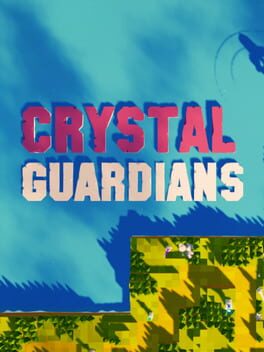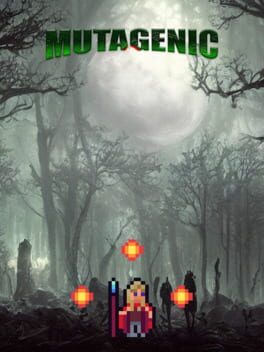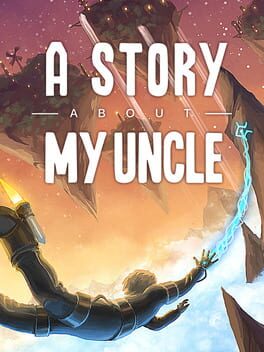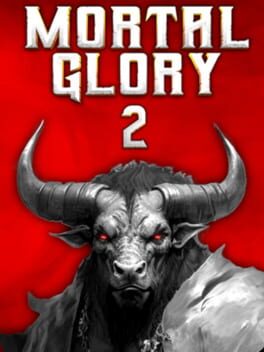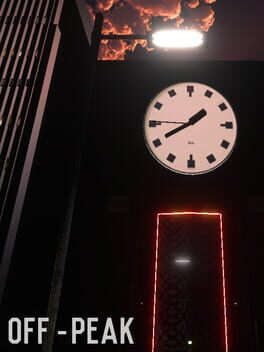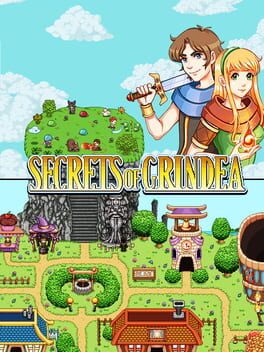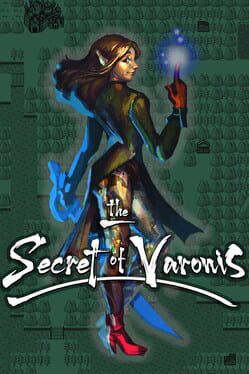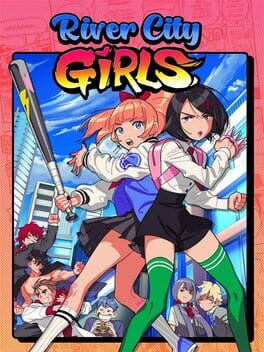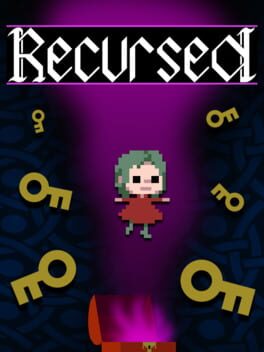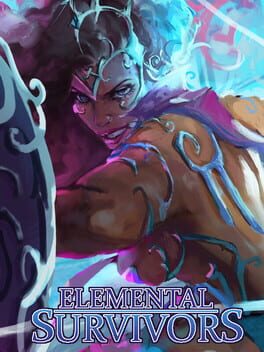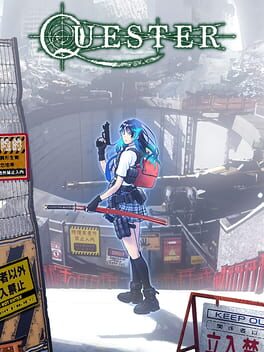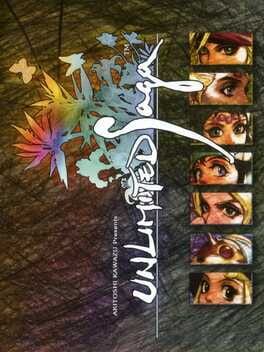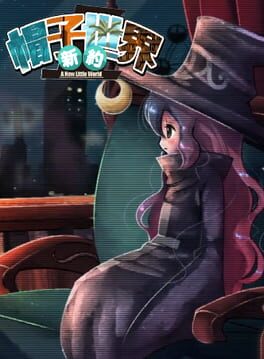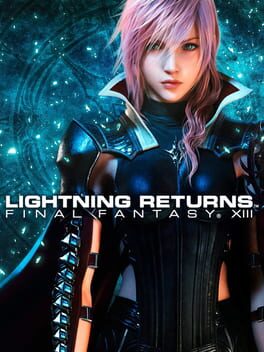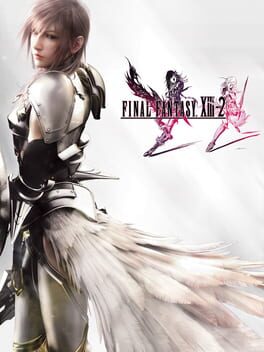jademonkey
2024
Very fun roguelite tower defense games. The basic mechanics are similar to Rogue Tower, but the quality just feels so much higher across the board here.
You improve towers by equipping items that you randomly find over the course of the run. Getting the right items is really important to winning and there's only so much you can do to adjust to the items you do find, so it feels a bit more luck based than I'd prefer. Of course, roguelites need a bit of a luck element, so it's not the end of the world.
There's a large metaprogression tree, but for some reason respec'ing costs half of your experience. I'll never understand why you'd want to curb experimentation in a game of this sort.
Anyway, complaints aside, the basic gameplay is on point. Worth a look if you are a tower defense fan.
You improve towers by equipping items that you randomly find over the course of the run. Getting the right items is really important to winning and there's only so much you can do to adjust to the items you do find, so it feels a bit more luck based than I'd prefer. Of course, roguelites need a bit of a luck element, so it's not the end of the world.
There's a large metaprogression tree, but for some reason respec'ing costs half of your experience. I'll never understand why you'd want to curb experimentation in a game of this sort.
Anyway, complaints aside, the basic gameplay is on point. Worth a look if you are a tower defense fan.
2022
A survivors-like with Path of Exile style builds. It's alright, but having deep builds and persistent equipment loses out on some of the flexibility and run-to-run excitement you expect from a survivors-like. I hit a point where I'd need to grind a bit for better equipment and just don't really feel like doing that.
I'll check back at some point in the future and see if it's more appealing then. Not a bad use of a dollar as it is, though.
I'll check back at some point in the future and see if it's more appealing then. Not a bad use of a dollar as it is, though.
I don't play many platformers these days, much less first person platformers, so A Story About My Uncle (ASAMU) was a bit of a step out of my comfort zone. I'd heard it mentioned on a couple of video game essay type youtube channels and figured I'd give it a go. It didn't blow my socks of it, but it was a neat a experience.
The gameplay is entirely focused around the mobility you get from your power suit -- a couple types of big jump, some grappling, and, later on, a boost. Using a combination of these abilities, you go from one checkpoint to the next, figuring out how to grapple-parkour your way through surprisingly hard challenges. There are no enemies or anything like that to worry about; the environment is challenge enough. The physics and movement felt really nice. That said, at times, I struggled to determine when an object would be in range to grapple, which lead to some annoying falls. Of course, there was almost always a checkpoint nearby, so it wasn't a big deal.
I loved the tone and environments of ASAMU. There's a great larger-than-life, otherworldly adventure, bed-time-story feel to it that resonated with me. While I'm actively in the "linear game are usual better" camp, I wouldn't have minded the game being a bit more open and exploration focused. As it is, you're generally going directly from A to B, with lots of checkpoints and high difficulty, which I found to be a bit at odds with the overall tone. Easier exploration sequences would have served to break up the challenge as well. There were a few areas in the game where every inch felt hard fought, to the point of tipping past rewarding and into frustrating.
There wasn't a whole lot of story to the game, but what was there was endearing. The voice acting felt a bit odd, with the cadence of delivery feeling particularly off, but it wasn't enough to break me out of the mood they were setting.
ASAMU is quite short, clocking in at around 3 hours. I think that was the perfect length, though, given the linearity and consistency of challenge.
The gameplay is entirely focused around the mobility you get from your power suit -- a couple types of big jump, some grappling, and, later on, a boost. Using a combination of these abilities, you go from one checkpoint to the next, figuring out how to grapple-parkour your way through surprisingly hard challenges. There are no enemies or anything like that to worry about; the environment is challenge enough. The physics and movement felt really nice. That said, at times, I struggled to determine when an object would be in range to grapple, which lead to some annoying falls. Of course, there was almost always a checkpoint nearby, so it wasn't a big deal.
I loved the tone and environments of ASAMU. There's a great larger-than-life, otherworldly adventure, bed-time-story feel to it that resonated with me. While I'm actively in the "linear game are usual better" camp, I wouldn't have minded the game being a bit more open and exploration focused. As it is, you're generally going directly from A to B, with lots of checkpoints and high difficulty, which I found to be a bit at odds with the overall tone. Easier exploration sequences would have served to break up the challenge as well. There were a few areas in the game where every inch felt hard fought, to the point of tipping past rewarding and into frustrating.
There wasn't a whole lot of story to the game, but what was there was endearing. The voice acting felt a bit odd, with the cadence of delivery feeling particularly off, but it wasn't enough to break me out of the mood they were setting.
ASAMU is quite short, clocking in at around 3 hours. I think that was the perfect length, though, given the linearity and consistency of challenge.
2024
Mortal Glory 2 is a roguelite tactical RPG in a gladiator setting. It's very directly influenced by Slay the Spire having a nearly identical map set up, but with combat being a grid-based tactical affair involving teams of (usually) up to 4 gladiators.
The execution here is solid. Buffs and debuffs are meaningful and useful. Knockback is a central mechanic. There's plenty of field effects. Your gladiators can be a variety of races, each giving an active ability that doesn't cost a turn to use. These are mostly fairly powerful, so they do enough to differentiate the races. Each unit can learn up 4 abilities on top of this, and freely increase their strength, agility, wisdom, and vitality. There's no classes, so you can end up having things like a tanky self-healing troll focused on summoning magic.
I've played 2 runs so far with a play time of 8 hours. I take my time in strategy games, but those are some chunky runs. Without pumping up difficulty settings, I've not found the game that hard so far, but I can imagine defeat will be frustrating if that's the result after 3 hours in a run. On the other hand, the long runs give a lot of time to develop and enjoy your team of gladiators.
It's a very low budget indie game and the presentation reflects that fact. Everything is perfectly readable, though, so the simple graphics and sounds didn't really have a negative impact on my enjoyment. I believe it uses some music packs I've heard elsewhere, but they're appropriate for the game, so that's not a big deal to me.
Overall, I'd say it's a good package and nicely scratches the tactical RPG itch without asking for 80 hours of your time. Definitely worth checking out if that's something that appeals to you.
The execution here is solid. Buffs and debuffs are meaningful and useful. Knockback is a central mechanic. There's plenty of field effects. Your gladiators can be a variety of races, each giving an active ability that doesn't cost a turn to use. These are mostly fairly powerful, so they do enough to differentiate the races. Each unit can learn up 4 abilities on top of this, and freely increase their strength, agility, wisdom, and vitality. There's no classes, so you can end up having things like a tanky self-healing troll focused on summoning magic.
I've played 2 runs so far with a play time of 8 hours. I take my time in strategy games, but those are some chunky runs. Without pumping up difficulty settings, I've not found the game that hard so far, but I can imagine defeat will be frustrating if that's the result after 3 hours in a run. On the other hand, the long runs give a lot of time to develop and enjoy your team of gladiators.
It's a very low budget indie game and the presentation reflects that fact. Everything is perfectly readable, though, so the simple graphics and sounds didn't really have a negative impact on my enjoyment. I believe it uses some music packs I've heard elsewhere, but they're appropriate for the game, so that's not a big deal to me.
Overall, I'd say it's a good package and nicely scratches the tactical RPG itch without asking for 80 hours of your time. Definitely worth checking out if that's something that appeals to you.
2015
2015
I picked this up thinking it might scratch that Legend of Mana itch -- action RPG combat with lots of systems to play with. I should have looked into it a bit more, since it's not really that. It's a fairly straightforward Secret of Mana-style action RPG with a rather normal skill tree. There is a pet system, which is why I got my hopes up for something Legend of Mana-esque, but they just function as passive bonuses. Totally my fault for not doing enough research on that end. Still, I like action RPGs, so I didn't let that deter me.
Unfortunately, I really don't enjoy the writing. It has that very referential late 2000s internet humor that simply doesn't work for me. I find it to be a bit grating regularly, and it only made me laugh in a couple of spots.
This could all still be saved for me if the gameplay was excellent, but it was just alright. Certainly not bad, but the movement felt a bit stiff and I found most of the special abilities to be awkward to use or just not that exciting. I respecced a number of times, but just couldn't find a build that excited me.
The collectathon aspect of it is enjoyable and well done, if a bit grindy (as the games name alludes to). If I liked the combat a bit more, I could see hunting down all of the loot motivating me to complete the game.
All in all, it's not a terrible game, and I can see how some people may really enjoy it. I'm just having an 'ok' time at best, so after ~7 hours, I think I'll just move on.
Unfortunately, I really don't enjoy the writing. It has that very referential late 2000s internet humor that simply doesn't work for me. I find it to be a bit grating regularly, and it only made me laugh in a couple of spots.
This could all still be saved for me if the gameplay was excellent, but it was just alright. Certainly not bad, but the movement felt a bit stiff and I found most of the special abilities to be awkward to use or just not that exciting. I respecced a number of times, but just couldn't find a build that excited me.
The collectathon aspect of it is enjoyable and well done, if a bit grindy (as the games name alludes to). If I liked the combat a bit more, I could see hunting down all of the loot motivating me to complete the game.
All in all, it's not a terrible game, and I can see how some people may really enjoy it. I'm just having an 'ok' time at best, so after ~7 hours, I think I'll just move on.
The Secret of Varonis is a spiritual successor to the original Gameboy SaGa trilogy (aka Final Fantasy Legend), having originally grown out of a fan game. The mechanics are essentially a combination of the first two SaGa games, with a decent amount of modern quality of life thrown in. The story is very similar to the first couple of games, seeing you climb a tower, visit worlds, and fight gods, though it's more focused and fleshed out than what you'd expect from a SaGa game. I actually rather enjoyed it by the end. While there's nothing particularly new here, everything is just a bit bigger, better, and smoother to play than the old games, creating an experience that I think even modern JRPG fans without nostalgia would have a great time with.
2019
I loved River City Ransom growing up, so I put River City Girls on my wishlist as soon as it came out. Only took me 5 years to actually get around to it!
I'm glad I did get around to it, though. I had a great time with the game. I was really surprised by the quality of the presentation -- the animated scenes, character portraits, and manga scenes were all great. I absolutely loved the sound track, both the chiptunes and the vocal tracks. The humor also landed pretty well for me. Not laugh out loud funny, but I was always happy for another story scene.
The overall structure of the game was what I hoped. You have your traditional River City open roam, with levels, money for food that heals and provides stats, plenty of goons to beat up, and weapons to grab as you go. All good stuff.
Unfortunately, there were some misses on the combat for me. It wasn't bad, but there were enough frustrating elements that it degraded the experience a bit. Enemies were pretty tanky and hard to air juggle, so there was a lot of stomping on them while they were on the ground and dodging their counters as they got up. Weapons ended up being a very slow option as well, since they almost always knock the enemy down on a single hit, which doesn't work well with the difficult air juggling. It was easy to accidentally pick up a weapon that an enemy dropped since that action was bound to light attack, so that was a minor annoyance as well. Grappling was mostly just a bad thing -- it provides no I-frames, so you're a sitting duck for the second it takes you to throw the enemy. It's easy to accidentally grapple an enemy you unexpectedly stun in a combo, which could be rather frustrating. I'm not sure if this was just user air, but I kept accidentally using the "power dab" (forward heavy attack) while trying to use my neutral heavy attack. It has a very long recovery, so it led to a lot of frustrating damage as well. Running is a double tap, which I had a bit of issues with as well, which could result in mispositioning or using the wrong attack. Not entirely sure if that's on me or if there were some detection issues, but I would have preferred it to be mapped some other way. It's not a big deal, but the accessories in the game were oddly bad as well -- I really don't care about a 5% damage boost against half of the enemies. I'm not going to notice that. None of these issues are huge, but taken together, they noticeably reduced my enjoyment of an otherwise solid beat 'em up combat system.
All that negativity aside, none of those issues really amounted to much in the way of problems for me. I took my time and kept plenty of food around to heal at all times, so I was never really in danger after the beginning sections of the game. I wasn't really here for a challenge, more just to soak up some vibes and beat down some dudes, so I don't think I minded it in the context of this game.
All in all, I really enjoyed my time with the game despite the annoyances with the combat and will likely swing back to River City Girls 2 later this year.
I'm glad I did get around to it, though. I had a great time with the game. I was really surprised by the quality of the presentation -- the animated scenes, character portraits, and manga scenes were all great. I absolutely loved the sound track, both the chiptunes and the vocal tracks. The humor also landed pretty well for me. Not laugh out loud funny, but I was always happy for another story scene.
The overall structure of the game was what I hoped. You have your traditional River City open roam, with levels, money for food that heals and provides stats, plenty of goons to beat up, and weapons to grab as you go. All good stuff.
Unfortunately, there were some misses on the combat for me. It wasn't bad, but there were enough frustrating elements that it degraded the experience a bit. Enemies were pretty tanky and hard to air juggle, so there was a lot of stomping on them while they were on the ground and dodging their counters as they got up. Weapons ended up being a very slow option as well, since they almost always knock the enemy down on a single hit, which doesn't work well with the difficult air juggling. It was easy to accidentally pick up a weapon that an enemy dropped since that action was bound to light attack, so that was a minor annoyance as well. Grappling was mostly just a bad thing -- it provides no I-frames, so you're a sitting duck for the second it takes you to throw the enemy. It's easy to accidentally grapple an enemy you unexpectedly stun in a combo, which could be rather frustrating. I'm not sure if this was just user air, but I kept accidentally using the "power dab" (forward heavy attack) while trying to use my neutral heavy attack. It has a very long recovery, so it led to a lot of frustrating damage as well. Running is a double tap, which I had a bit of issues with as well, which could result in mispositioning or using the wrong attack. Not entirely sure if that's on me or if there were some detection issues, but I would have preferred it to be mapped some other way. It's not a big deal, but the accessories in the game were oddly bad as well -- I really don't care about a 5% damage boost against half of the enemies. I'm not going to notice that. None of these issues are huge, but taken together, they noticeably reduced my enjoyment of an otherwise solid beat 'em up combat system.
All that negativity aside, none of those issues really amounted to much in the way of problems for me. I took my time and kept plenty of food around to heal at all times, so I was never really in danger after the beginning sections of the game. I wasn't really here for a challenge, more just to soak up some vibes and beat down some dudes, so I don't think I minded it in the context of this game.
All in all, I really enjoyed my time with the game despite the annoyances with the combat and will likely swing back to River City Girls 2 later this year.
2016
Recursed is easily one of the most clever puzzle games I've played. It takes a few ideas from computer science -- largely variable scope and the titular recursion, and makes them into an extremely fun puzzler with just the tiniest bit of platforming. The most basic concept is that each room of the game exists in a box. When you go into a box, everything in it is instantiated anew. So, if you need two keys in the box you are currently in, and have a box with a key in it, you go in and remove a key, drop it, then go back for another. From there, it introduces a few others tools dealing with scoping or, in other words, 'rules of existence'. For example, only one copy of an enchanted object exists. If you move it in a room, then that's where it'll be when you come back. If you take it out of a room, it won't be there again unless you bring it back. And so on. It then takes every one of these tools and asks you to take it figure out different logical extremes throughout the puzzles. Unironically, Recursed is all of the fun parts of an algorithms course, but packaged in a way that's cute and accessible, avoiding the need for any knowledge of mathematical notation, formalisms, and so on.
I found the game fairly challenging, but nothing was too extreme. That said, I'm a computer scientist, so my background had me well prepared for what Recursed asked of me. Even so, I think it's something that any puzzle fan can enjoy, as long as you're willing to stretch your mind in ways that very few others games ask you to. There were a few puzzles where I ended up taking notes on how to reach a certain state -- some of the set ups could be rather involved, and it was easy to end up in an unwinnable position. In fact, that's my only real criticism of the game: it could be frustrating to have to redo a 30 step process after making a mistake. Still, it wasn't so bad once I just started taking notes on the longer puzzles, and there really weren't too many of them.
I completed all of the regular courses, many of the (extremely cool) 'hidden routes', and got the main ending. I had a great time the whole way through, and will likely be back to find the 'hidden routes' I missed the first time through and play the side puzzles at some point. I consider Recursed to be among the all time greats of the Puzzle genre, and highly recommend it!
I found the game fairly challenging, but nothing was too extreme. That said, I'm a computer scientist, so my background had me well prepared for what Recursed asked of me. Even so, I think it's something that any puzzle fan can enjoy, as long as you're willing to stretch your mind in ways that very few others games ask you to. There were a few puzzles where I ended up taking notes on how to reach a certain state -- some of the set ups could be rather involved, and it was easy to end up in an unwinnable position. In fact, that's my only real criticism of the game: it could be frustrating to have to redo a 30 step process after making a mistake. Still, it wasn't so bad once I just started taking notes on the longer puzzles, and there really weren't too many of them.
I completed all of the regular courses, many of the (extremely cool) 'hidden routes', and got the main ending. I had a great time the whole way through, and will likely be back to find the 'hidden routes' I missed the first time through and play the side puzzles at some point. I consider Recursed to be among the all time greats of the Puzzle genre, and highly recommend it!
2023
The feel of the game isn't too bad for a Vampire Survivors-like. Unfortunately, the balance is so far off being reasonable that I don't think this will ever end up being a satisfying experience. There are many weapons, that, even when fully evolved and maxed (20 levels), are significantly outperformed by better weapons with only a handful of levels spent on them. Others, like Magic Missile Swarm, just frequently outright miss enemies. It makes the unlocking process repeatedly disappointing, and that's a substantial part of the fun in this sort of a game for me.
I like the concept, so I kept playing the game after running into a few of these issues hoping that it was just an oversight, but it was consistent. I don't like leaving negative reviews for early access indie games, but the issues here should have been obvious by just thinking about numbers for a second while coding. Otherwise, they should stick out very quickly with any level of playtesting. I'll check back for a major revision, but, barring that, you'd be better served playing any of a dozen better made games in this style.
I like the concept, so I kept playing the game after running into a few of these issues hoping that it was just an oversight, but it was consistent. I don't like leaving negative reviews for early access indie games, but the issues here should have been obvious by just thinking about numbers for a second while coding. Otherwise, they should stick out very quickly with any level of playtesting. I'll check back for a major revision, but, barring that, you'd be better served playing any of a dozen better made games in this style.
2023
This is a fun little dungeon crawler!
The battle system is solid. Each character has a number of AP to spend every turn. You set the abilities you want, and then combat plays out with autotargeting. The autotargeting was generally smart, so it allowed the game to move a bit faster will still allowing all of your characters to have multiple actions per turn. These actions were also interesting running the gamut of attacks, buffs, heals, debuffs, AoEs, attacks with debuffs, etc. Everything is useful -- stun and bleed played a big roll even on important boss fights for my team. Unfortunately, even with combat speed cranked all of the way up, things got a bit tedious by the end. I was browsing reddit as I waited for turns to play out in the last couple of zones.
I really enjoyed the equipment system in the game. Essentially, all of your abilities in combat are determined by the two weapons and one accessory each character can equip. Each piece of equipment is limited to certain classes and scales with a couple different stats, while sometimes providing new passives in addition to the active abilities. This made looting very exciting all game -- not only would numbers go up when you found a new weapon, but build variety would meaningfully change as well. An exciting loot system goes a long way to making a dungeon crawler fun!
The presentation was simple but effective. The controls for the UI were bafflingly weird, but they weren't too much of an impediment one I figured them out.
Another minor grip with the game is that the new members joining were typically far underlevelled, without any quick way of catching them up. I did switch one member out fairly late in the game, but it took hours for the new recruit to match up to the rest. It was worth it since she ended up being my best damage dealer, but it was needlessly annoying getting her caught up. Apparently New Game plus will allow you to start with a different team altogether, but I'm moving on for now at least.
Quester is a solid dungeon crawler, well worth a look if you like the genre.
The battle system is solid. Each character has a number of AP to spend every turn. You set the abilities you want, and then combat plays out with autotargeting. The autotargeting was generally smart, so it allowed the game to move a bit faster will still allowing all of your characters to have multiple actions per turn. These actions were also interesting running the gamut of attacks, buffs, heals, debuffs, AoEs, attacks with debuffs, etc. Everything is useful -- stun and bleed played a big roll even on important boss fights for my team. Unfortunately, even with combat speed cranked all of the way up, things got a bit tedious by the end. I was browsing reddit as I waited for turns to play out in the last couple of zones.
I really enjoyed the equipment system in the game. Essentially, all of your abilities in combat are determined by the two weapons and one accessory each character can equip. Each piece of equipment is limited to certain classes and scales with a couple different stats, while sometimes providing new passives in addition to the active abilities. This made looting very exciting all game -- not only would numbers go up when you found a new weapon, but build variety would meaningfully change as well. An exciting loot system goes a long way to making a dungeon crawler fun!
The presentation was simple but effective. The controls for the UI were bafflingly weird, but they weren't too much of an impediment one I figured them out.
Another minor grip with the game is that the new members joining were typically far underlevelled, without any quick way of catching them up. I did switch one member out fairly late in the game, but it took hours for the new recruit to match up to the rest. It was worth it since she ended up being my best damage dealer, but it was needlessly annoying getting her caught up. Apparently New Game plus will allow you to start with a different team altogether, but I'm moving on for now at least.
Quester is a solid dungeon crawler, well worth a look if you like the genre.
2002
Man, I really wanted to like Unlimited SaGa. I gave it the better part of 15 hours to grow on me, going through the majority of Ventus’ scenario to my understanding, but I honestly just think it’s not a well made game.
I actually love the board game style exploration in concept. Unfortunately, the interface is just awful and really drags down the entire game. For example, chests take way too many button presses to deal with – search with the sharpeye skill, deal with the traps, then unlock, then handle the magic lock, then maybe use the fortune teller skill a few times, then open. Each of which requires multiple presses to open the action menu, select the chest, select the character, scroll to the ability, activate the ability, do the reel. Also, some basic party management isn’t even available in cities and has to be done on the adventure map, which is weird. Doubly because you can’t save outside of town.
Very nice art and music, generally speaking. Everything in battle looks great and has a lot of character – the sprite work is extremely good! I really do enjoy the character and monster designs. The dungeons themselves have almost no detail on the map, which stinks since you spend so long looking at it. There’s artwork off the side, but the interface is very intrusive and frequently blocks a portion of the art. The whole thing is just ugly and low effort. While I love the combat theme, most of the music is just kind of there.
I have negative feelings about the combat system, even discounting the barrier to entry. I absolutely do not like the implementation of HP/LP here. HP is really just a probabilistic buffer to LP damage – sometimes you’ll take an LP from a scratch and it just feels bad. Since you don’t go down at 0 HP and sometimes you take LP damage at high health, it sometimes feels like your decisions in combat don’t matter. Combat became a frustration that I wanted to avoid since there weren’t any immediate rewards, just a chance for a better tile at the end of the mission – which is crucial, so you really don’t want to avoid too much combat. The challenge is in being slowly worn down over the course of overly long dungeons, which I simply don’t find enjoyable. The majority of the tactics in fights revolves around knowing which units to move first (and thus make more likely to be targeted) and which ones to let sit out to recover HP, which is neat, but I wish the abilities were more interesting to support it. Otherwise, you’re generally just selecting which attack reels to use based on whether you need HP or LP damage more. Magic is really hard to come by, so chances are you won’t have a whole lot of choice there unless you really gun for it and know what you are doing. Many of the low level spells also just boost your ability to cast magic with that school or provide a detection spell for a certain kind of enemy, so you really have to luck out to actually get anything useful. It would also be nice to have more information visible in combat, such as how many LP an enemy has and such.
I really don’t like the growth tile system. Being forced to take a tile and replace one you already have every mission means that you’re actually making your character slightly weaker after a mission sometimes. Further, the tiles offered are randomized, and sometimes the ones you need just don’t drop, despite taking the actions that make them more likely to drop. It’s another place where the basic idea is interesting, but the actual execution ends up being more frustrating than enjoyable.
I’m not a big fan of the reel system, but I think it’s fine design-wise. Just not to my taste.
Like I said – I really wanted to like Unlimited SaGa, and I gave it more than its fair shake to grow on me. There really are a lot of neat ideas here, and there's nothing quite like it. I think a remake that fixes the interface annoyances, makes magic more available, tweaks the growth tile system in the way mentioned, and totally reworks the HP/LP system could actually be a pretty darn awesome game.
I actually love the board game style exploration in concept. Unfortunately, the interface is just awful and really drags down the entire game. For example, chests take way too many button presses to deal with – search with the sharpeye skill, deal with the traps, then unlock, then handle the magic lock, then maybe use the fortune teller skill a few times, then open. Each of which requires multiple presses to open the action menu, select the chest, select the character, scroll to the ability, activate the ability, do the reel. Also, some basic party management isn’t even available in cities and has to be done on the adventure map, which is weird. Doubly because you can’t save outside of town.
Very nice art and music, generally speaking. Everything in battle looks great and has a lot of character – the sprite work is extremely good! I really do enjoy the character and monster designs. The dungeons themselves have almost no detail on the map, which stinks since you spend so long looking at it. There’s artwork off the side, but the interface is very intrusive and frequently blocks a portion of the art. The whole thing is just ugly and low effort. While I love the combat theme, most of the music is just kind of there.
I have negative feelings about the combat system, even discounting the barrier to entry. I absolutely do not like the implementation of HP/LP here. HP is really just a probabilistic buffer to LP damage – sometimes you’ll take an LP from a scratch and it just feels bad. Since you don’t go down at 0 HP and sometimes you take LP damage at high health, it sometimes feels like your decisions in combat don’t matter. Combat became a frustration that I wanted to avoid since there weren’t any immediate rewards, just a chance for a better tile at the end of the mission – which is crucial, so you really don’t want to avoid too much combat. The challenge is in being slowly worn down over the course of overly long dungeons, which I simply don’t find enjoyable. The majority of the tactics in fights revolves around knowing which units to move first (and thus make more likely to be targeted) and which ones to let sit out to recover HP, which is neat, but I wish the abilities were more interesting to support it. Otherwise, you’re generally just selecting which attack reels to use based on whether you need HP or LP damage more. Magic is really hard to come by, so chances are you won’t have a whole lot of choice there unless you really gun for it and know what you are doing. Many of the low level spells also just boost your ability to cast magic with that school or provide a detection spell for a certain kind of enemy, so you really have to luck out to actually get anything useful. It would also be nice to have more information visible in combat, such as how many LP an enemy has and such.
I really don’t like the growth tile system. Being forced to take a tile and replace one you already have every mission means that you’re actually making your character slightly weaker after a mission sometimes. Further, the tiles offered are randomized, and sometimes the ones you need just don’t drop, despite taking the actions that make them more likely to drop. It’s another place where the basic idea is interesting, but the actual execution ends up being more frustrating than enjoyable.
I’m not a big fan of the reel system, but I think it’s fine design-wise. Just not to my taste.
Like I said – I really wanted to like Unlimited SaGa, and I gave it more than its fair shake to grow on me. There really are a lot of neat ideas here, and there's nothing quite like it. I think a remake that fixes the interface annoyances, makes magic more available, tweaks the growth tile system in the way mentioned, and totally reworks the HP/LP system could actually be a pretty darn awesome game.
I’m astounded that Hat World was made in RPGmaker. Valkyrie Profile style exploration, with Romancing SaGa style combat, character progression, route structure, and more. There's tons of side content, customizable (and potentially very difficult) boss fight difficulty, and a surprisingly interesting story. There’s a fair amount of Madoka and Phillip K Dick going on in the story, and I love it.
A lot of the rough edges from the Romancing SaGa series are filed down – quests are more clear, encounter level increases when beating a boss instead of with all battles, etc. There’s a bit more room for grinding throughout the game than most of the Romancing SaGa series, but most means of character progression are gated by the current enemy difficulty, so you can only grind so far. There are a ton of optional end game bosses to fight, which tend to require specific strategies. There were several I found harder than any of the final SaGa bosses.
The game looks and sounds quite good for a solo RPGmaker project as well. The pixel art conveys a lot of character, and the music and sound effects were well chosen.
It leans too hard into anime tropes for my taste in general, but I'm not too horribly bothered by it. In particular, I’d really rather the game not have the one section with 'lolicon' jokes, but luckily it's a very small portion of the game and I’m fully capable of rolling my eyes and moving on. While the customization options are great, I do wish characters had more innate traits setting them apart, though that’s a fairly minor quibble.
I had an absolute blast with the game. It says a lot that I'm tempted to jump straight back into another route without taking a break first. I almost never replay games without at least a year or two in between.
A lot of the rough edges from the Romancing SaGa series are filed down – quests are more clear, encounter level increases when beating a boss instead of with all battles, etc. There’s a bit more room for grinding throughout the game than most of the Romancing SaGa series, but most means of character progression are gated by the current enemy difficulty, so you can only grind so far. There are a ton of optional end game bosses to fight, which tend to require specific strategies. There were several I found harder than any of the final SaGa bosses.
The game looks and sounds quite good for a solo RPGmaker project as well. The pixel art conveys a lot of character, and the music and sound effects were well chosen.
It leans too hard into anime tropes for my taste in general, but I'm not too horribly bothered by it. In particular, I’d really rather the game not have the one section with 'lolicon' jokes, but luckily it's a very small portion of the game and I’m fully capable of rolling my eyes and moving on. While the customization options are great, I do wish characters had more innate traits setting them apart, though that’s a fairly minor quibble.
I had an absolute blast with the game. It says a lot that I'm tempted to jump straight back into another route without taking a break first. I almost never replay games without at least a year or two in between.
Yay, I've finally finished the wild ride of FF13! It's taken me just under 2 months of playing almost nothing else. I feel comfortable in saying that it's my second favorite experience with the Final Fantasy franchise, with only FF Tactics narrowly beating it out.
I don't really feel up to writing a proper review or a larger list of thoughts, so I'll just jot down a couple of things so I can look back and remember why I liked this rather divisive game.
The world built in this game is my favorite of all Final Fantasy games. I absolutely loved the exploration of what would happen if people stopped aging for 500 years and no new life could be born. Consequently, Lightning Returns was one of the rare JRPGs where I actually cared about doing the side quests. Which was good, since that's the way you level up lol. Also the voice acting was rather hit or miss.
The combat system is also excellent. Learning enemy patterns and jumping between costumes to pull out the right attacks or blocks/dodges/counters at the perfect time is very rewarding. Again, it's good that I felt this way, since you'll have to fight quite a lot if you want to continually freeze the timer.
Oh yeah, the timer. It was cool in that it gave you the sense of urgency you'd want with this type of story, but also a little annoying at times. In the end, I had more extra days that I just threw away than days I actually needed, though, so the negative aspects were largely mitigated.
You get to play dress up a lot and that's been a favorite thing of mine in video games since I played City of Heroes back in the day. RIP.
The main story was a little thin, but I liked it. None of the twists were particularly surprising, but it was what I was hoping for. It was also very cool to see how all of the main characters were affected by the horrible fever-dream of a world. The ending was completely over the top, but in the best and most thematically appropriate way possible. I loved it. I loved this game.
Edit: Oh yeah. Excellent music again. Not quite as striking and varied as XIII-2, but definitely something I'll turn throw on from time to time while I'm at my computer.
I don't really feel up to writing a proper review or a larger list of thoughts, so I'll just jot down a couple of things so I can look back and remember why I liked this rather divisive game.
The world built in this game is my favorite of all Final Fantasy games. I absolutely loved the exploration of what would happen if people stopped aging for 500 years and no new life could be born. Consequently, Lightning Returns was one of the rare JRPGs where I actually cared about doing the side quests. Which was good, since that's the way you level up lol. Also the voice acting was rather hit or miss.
The combat system is also excellent. Learning enemy patterns and jumping between costumes to pull out the right attacks or blocks/dodges/counters at the perfect time is very rewarding. Again, it's good that I felt this way, since you'll have to fight quite a lot if you want to continually freeze the timer.
Oh yeah, the timer. It was cool in that it gave you the sense of urgency you'd want with this type of story, but also a little annoying at times. In the end, I had more extra days that I just threw away than days I actually needed, though, so the negative aspects were largely mitigated.
You get to play dress up a lot and that's been a favorite thing of mine in video games since I played City of Heroes back in the day. RIP.
The main story was a little thin, but I liked it. None of the twists were particularly surprising, but it was what I was hoping for. It was also very cool to see how all of the main characters were affected by the horrible fever-dream of a world. The ending was completely over the top, but in the best and most thematically appropriate way possible. I loved it. I loved this game.
Edit: Oh yeah. Excellent music again. Not quite as striking and varied as XIII-2, but definitely something I'll turn throw on from time to time while I'm at my computer.
2011
This review/collection of thoughts is just for the main story. I plan to play at least some of the DLC and collect some more fragments, but I'm heading out of town for a week or so tomorrow and want to jot down my thoughts beforehand.
Characters: While the characters and character interactions were a high point for me in the first game, here it's just kind of a "meh" point. Serah doesn't have as much personality as I'd like for a lead. She's not a bad character, but she really doesn't live up to the cast from 13. Noel, on the other hand, has a lot more personality and is an enjoyable lead. My only complaint is that I wish they would have leaned a lot more heavily into his back story. He's a little too normal of a dude for someone with his origin. The main villain is well done. I love how they tied in and developed Hope. The character design/costumes in this game were... not my favorite.
Story: I love time travel stories, and this was no exception. It wasn't a particularly cerebral story, but it stuck to it's premise and delivered something that was a lot of fun. I was never as emotional invested in it as I would have liked, but it kept my curious and delivered some good punches at the end. Definitely has me excited to play the DLC and Lightning Returns when I get back.
Battle: Honestly, a huge step back from FF13 in my eyes. The couple of things that they improved just didn't make up for the missteps. In FF13, the fastest and most effective way to finish battles generally involved the use of saboteurs and synergists. If things got hairy, I needed sentinels (well, only in a few places... ) and medics. Staggering enemies quickly and maximizing stagger damage was important. In 13-2, synergists and saboteurs are immensely less effective (and wouldn't be particularly needed otherwise...), to the point that I essentially didn't touch them. I needed sentinels even less than in the first game, and even many boss fights could be won quickly enough that medics weren't necessary. So, the class coverage went from 5.5/6 to like 2.5/6 in any give battle.
The game was simply too easy. I heard this beforehand, so I purposefully dodged fights regularly to try to stunt my growth. Unfortunately, this wasn't always possible (cie'th city was the worst ugh) and I ended up overpowered regardless. After the bitch of a final boss fight in FF13, sailing right through the final bosses with only a single moment of danger was a big disappointment.
Music: All over the place in the best of ways. The nu-metal screamo-ish themes for some of the bosses and chocobos had me grinning like an idiot. There were vocal themes that had strong Nier/Nier Automata vibes to them, which I absolutely loved. The battle themes ranged from wistful electronica to metal adjacent prog rock with some kickin violins. Honestly, the music is a large part of what bumped this game from 3 stars to 4 stars for me. So damn fun and good
Monsters: My other favorite part of this game. I love collecting and breeding monsters, and I enjoyed the little bit I dabbled in here. I kept myself from going too far down the rabbit hole, due to the aformentioned lack of difficulty, but I'm looking forward to playing with it some more during the post game content. Putting newsboy caps on killer robots was a particular highlight for me. Also, Flanitors cracked me up in FF13, and having them actually be a useful member of my time was double plus good.
Linearity: Exact opposite of FF13. I honestly enjoyed the linearity of 13, but this is a damn time travel game. I had a lot of fun popping in and doing a side quest here and there at different points in history. Grabbing the fragments for lore is fun too, and I'm looking forward to finding more.
Graphics: Big step back from 13, but not bad at all for 2011.
Fun Factor: Here's the thing. The game was just fun. Yeah, I think it was worse in most of the more 'serious' elements as compared to 13. But, I had fun almost every step of the way. There were several moments in the game that had me laughing, and a bunch that had me going "That's rad".
Length: The 25ish hours it took me to beat the main story (plus a couple of side areas) were spot on, and I feel satisfied but eager to do some of the side content. That is exactly what I like to feel when I finish the game. Far too many JRPGs overstay their welcome, and I'm so glad this series doesn't.
Conclusion: One of the most enjoyable Final Fantasy games, and a very solid JRPG in general. I have a feeling the soundtrack will find its way to my regular playlists.
Characters: While the characters and character interactions were a high point for me in the first game, here it's just kind of a "meh" point. Serah doesn't have as much personality as I'd like for a lead. She's not a bad character, but she really doesn't live up to the cast from 13. Noel, on the other hand, has a lot more personality and is an enjoyable lead. My only complaint is that I wish they would have leaned a lot more heavily into his back story. He's a little too normal of a dude for someone with his origin. The main villain is well done. I love how they tied in and developed Hope. The character design/costumes in this game were... not my favorite.
Story: I love time travel stories, and this was no exception. It wasn't a particularly cerebral story, but it stuck to it's premise and delivered something that was a lot of fun. I was never as emotional invested in it as I would have liked, but it kept my curious and delivered some good punches at the end. Definitely has me excited to play the DLC and Lightning Returns when I get back.
Battle: Honestly, a huge step back from FF13 in my eyes. The couple of things that they improved just didn't make up for the missteps. In FF13, the fastest and most effective way to finish battles generally involved the use of saboteurs and synergists. If things got hairy, I needed sentinels (well, only in a few places... ) and medics. Staggering enemies quickly and maximizing stagger damage was important. In 13-2, synergists and saboteurs are immensely less effective (and wouldn't be particularly needed otherwise...), to the point that I essentially didn't touch them. I needed sentinels even less than in the first game, and even many boss fights could be won quickly enough that medics weren't necessary. So, the class coverage went from 5.5/6 to like 2.5/6 in any give battle.
The game was simply too easy. I heard this beforehand, so I purposefully dodged fights regularly to try to stunt my growth. Unfortunately, this wasn't always possible (cie'th city was the worst ugh) and I ended up overpowered regardless. After the bitch of a final boss fight in FF13, sailing right through the final bosses with only a single moment of danger was a big disappointment.
Music: All over the place in the best of ways. The nu-metal screamo-ish themes for some of the bosses and chocobos had me grinning like an idiot. There were vocal themes that had strong Nier/Nier Automata vibes to them, which I absolutely loved. The battle themes ranged from wistful electronica to metal adjacent prog rock with some kickin violins. Honestly, the music is a large part of what bumped this game from 3 stars to 4 stars for me. So damn fun and good
Monsters: My other favorite part of this game. I love collecting and breeding monsters, and I enjoyed the little bit I dabbled in here. I kept myself from going too far down the rabbit hole, due to the aformentioned lack of difficulty, but I'm looking forward to playing with it some more during the post game content. Putting newsboy caps on killer robots was a particular highlight for me. Also, Flanitors cracked me up in FF13, and having them actually be a useful member of my time was double plus good.
Linearity: Exact opposite of FF13. I honestly enjoyed the linearity of 13, but this is a damn time travel game. I had a lot of fun popping in and doing a side quest here and there at different points in history. Grabbing the fragments for lore is fun too, and I'm looking forward to finding more.
Graphics: Big step back from 13, but not bad at all for 2011.
Fun Factor: Here's the thing. The game was just fun. Yeah, I think it was worse in most of the more 'serious' elements as compared to 13. But, I had fun almost every step of the way. There were several moments in the game that had me laughing, and a bunch that had me going "That's rad".
Length: The 25ish hours it took me to beat the main story (plus a couple of side areas) were spot on, and I feel satisfied but eager to do some of the side content. That is exactly what I like to feel when I finish the game. Far too many JRPGs overstay their welcome, and I'm so glad this series doesn't.
Conclusion: One of the most enjoyable Final Fantasy games, and a very solid JRPG in general. I have a feeling the soundtrack will find its way to my regular playlists.
